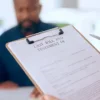What Does Acquittal Mean?
A lot of people wonder what it means to be acquitted in a case. It doesn’t seem like something that should be such a mystery, but everyone seems to bring at least one question about it into lawyer offices when they come in for a consultation. All clients need to know what an acquittal entails. Court terminology can be confusing, but it is important to do your research especially if you are personally involved in an open case.
So, what does it mean to be acquitted in a case? During my research, I learned there are multiple types of acquittals and different situations in the courtroom that lead to an acquittal. Specifically, what does it mean when we say someone was “acquitted?” The term “acquitted” comes from the Latin word “acquiesce,” meaning “to agree.” When we say that someone has been acquitted, it means that they were found not guilty in a criminal trial.
An acquittal in a criminal case means that the defendant is found not guilty of the charges against them. This can be the result of a trial by jury or a bench trial. An acquittal may also occur if the prosecutor decides to drop the charges against the defendant.

Different Types Of Acquittals
- Acquittal Due to Lack of Evidence: This acquittal is when the jury cannot reach a verdict and there isn’t enough evidence in the case, this is known as an acquittal due to lack of evidence. This means that the defendant will be set free and is not guilty. Therefore, one is acquitted if there is not enough evidence to support the prosecution’s case.
- Judicial or Bench Acquittal: This acquittal is when a judge decides that there is not enough evidence to show that the defendant is guilty, they may declare a judicial or bench acquittal. This essentially means that the judge has acquitted the defendant of all charges in question.
- Acquittal by Mistake of Fact: This acquittal is when it is determined that there was no crime committed because one of the necessary elements for a crime didn’t exist, then this is known as an acquittal by mistake of fact. For example, if someone is accused of stealing a car, but it’s later determined that the car was given to them as a gift, they would be acquitted due to a mistake of fact.
Situations To Be Acquitted
According to the legal experts at Bruner Law, there can be many reasons why a person might get acquitted in court. A reason may be that the defendant has a good lawyer who can poke holes in the prosecution’s case. Sometimes people are just lucky and get lucky with the jury selection process. Whatever the reason, there are several ways to get acquitted in court.
Warnings
If you are facing criminal charges, it is important to understand the different ways that you can be acquitted. You need to know what evidence the prosecution has against you and what defenses might be available to you. You also need to make sure that you have a good criminal defense lawyer representing you.
If the case against you is not very strong, there might be a chance that your lawyer can get the charges dropped or even get you acquitted in court.
There are several factors to look at when trying to determine what will happen in your specific situation. Hiring a good criminal defense attorney will allow him to investigate the details of your case and let you know what will happen based on his research.
You should also make sure that you do your investigation into your case to see how strong the evidence is against you and whether any legal defenses might be available to you.
What Does It Mean to Be Found Not Guilty?
When one is found not guilty means that the jury or judge in the case, after hearing all of the evidence, decides that the prosecution has not proved beyond a reasonable doubt that the accused person is guilty.
There are varying degrees of acquittal in cases – from “not guilty,” to “no bill” (the prosecutor does not even bring charges against you), or when charges are dropped before trial. The term for this last one is “nolle prosequi”.

What Does It Mean to Be Found Not Guilty At Trial?
Being found not guilty at trial means that the accused has been acquitted after their case was heard by a judge and jury. Without having to take additional steps, they are automatically free to leave the court and return to their lives.
How Common Is It for Someone to Be Acquitted?
It is difficult to say exactly how often people are acquitted since every case is different. However, according to the Bureau of Justice Statistics, in 2010 there were about 162,000 acquittals in U.S. courts out of the 1.5 million felony and misdemeanor defendants who were prosecuted. This means that around eleven percent of all prosecutions ended in acquittal.
So while it is not the most common result, when someone is acquitted, this simply means they are innocent under the law.
Dismissing A Case
When a prosecutor dismisses a case or declines to prosecute (does a “nolle prosequi”), the accused is still not released from custody. It simply means that a decision has been made not to pursue a case at this time, and in most jurisdictions, the prosecutor retains the right to refile charges later if they wish.
In some cases when a case is dismissed, it is because of an issue with the evidence–for example, if the prosecutor can’t prove that the accused was actually at the scene of the crime. In other cases, it may be because the prosecutor has decided that they don’t have a strong case, or that other priorities need to be taken care of.
Here are some of the different ways that a person can be acquitted in court:
The Prosecution Has No Case Against You
If the prosecution has no real evidence against you, your defense attorney may be able to get your case dismissed or even have the charges dropped before it ever goes to trial. This situation happens more often than not because most people are innocent and there are not enough facts to support a conviction.
In criminal law, the prosecution has to prove that you are guilty “beyond a reasonable doubt.” If they do not have sufficient evidence on any one of these facts, your attorney can get your case dismissed or reduced on those grounds.
The Defendant Had a Good Lawyer
A good lawyer can poke holes in the prosecution’s case and can often get the charges reduced or dismissed. This is especially true if the evidence against you is weak or any legal defenses might be available to you.
A good lawyer will also know how to present your case in the best light possible to the jury. If you have a good lawyer, your chances of getting acquitted are much higher.
The Jury Selection Process Was in Your Favor
Sometimes people get lucky with the jury selection process and end up with a jury that is more likely to acquit them. This can happen for several reasons, such as the jury being biased against the prosecution or the defendant being from a different race or culture than the jury. You also need to consider whether or not the defendant looked guilty to the jury. If he didn’t look guilty, they are more likely to find him not guilty based on that fact alone.
There are many ways that a person can be acquitted in court. The prosecution must prove guilt “beyond a reasonable doubt” and may not have sufficient evidence to do so. Your lawyer can also poke holes in the prosecution’s case and use legal defenses that might be available to you. Finally, if you get lucky with the jury selection process, your chances of getting acquitted are much higher.

When Will I Know If My Case is Dismissed?
The answer to this question can vary a lot, depending on the jurisdiction and whether or not there is a pending hearing or trial. Generally speaking, you will be notified if the case against you is dismissed. However, remember that the prosecutor can always choose to refile charges at a later time.
One reason why one might be acquitted is that the prosecution may not have enough evidence to convict. For example, if the defendant is accused of murder, but there is no weapon and no eyewitnesses, the prosecution may not be able to prove that the defendant committed the crime.
Another reason why someone might be acquitted is if there was a mistake in the way the case was investigated or in the way the evidence was presented in court. For example, if the prosecution relies on DNA evidence to prove that the defendant committed a crime, but there is a mistake in the lab report, the defendant may be acquitted.
Finally, if the jury does not believe that the defendant is guilty beyond a reasonable doubt, he or she may be acquitted. To put it simply, if the jury thinks there is a good reason to doubt that the defendant committed the crime, they might acquit him or her.








